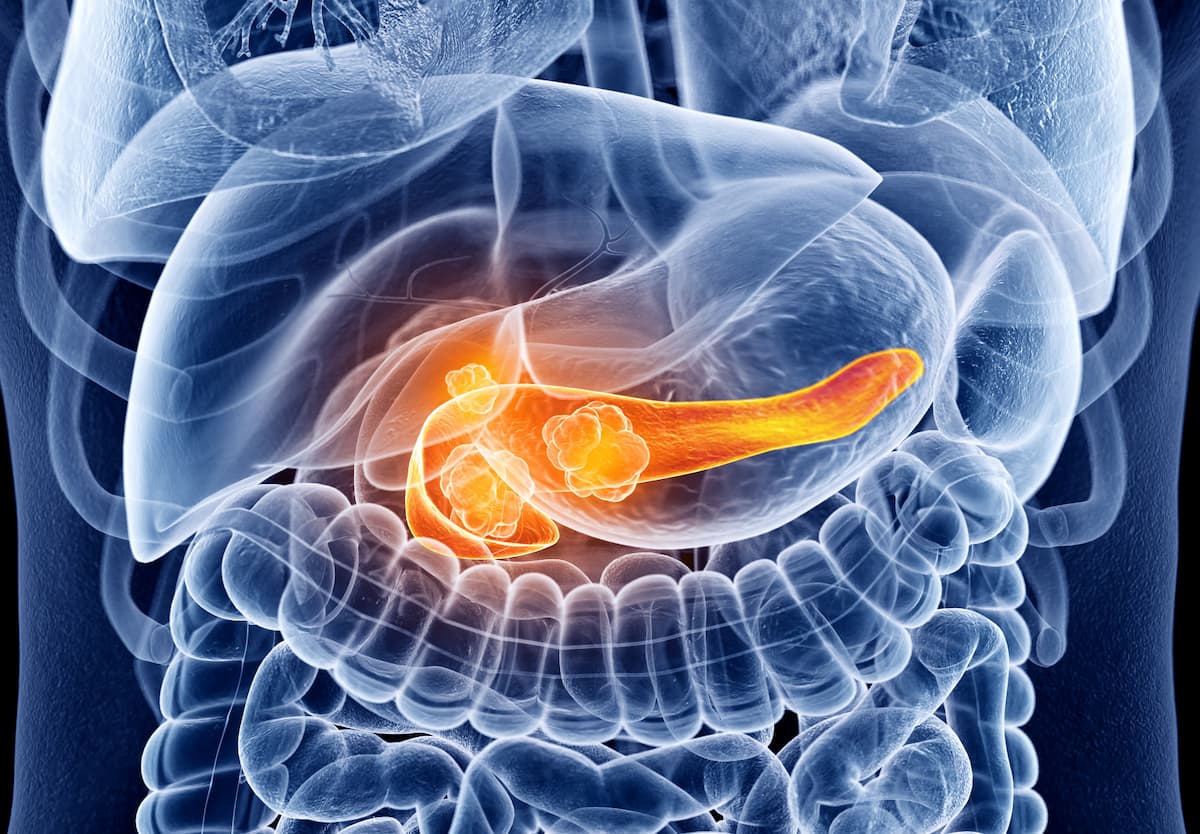Rintatolimod/Durvalumab Dose Appears Tolerable in Pancreatic Cancer
Safety findings highlight no severe adverse effects or dose-limiting toxicities with the rintatolimod combination in late-stage pancreatic cancer.
Following these safety results, escalation to the next dose level will take place based on protocol design. Developers anticipate initiating dosing for patients in this cohort soon.

Combining rintatolimod (Ampligen) with durvalumab (Imfinzi) appeared to be generally well-tolerated among patients with late-stage pancreatic cancer, according to a press release on safety evaluation findings from the phase 1b/2 DURIPANC trial (NCT05927142).1
Among patients who received the combination at the first dose level of the dose-escalation design in the study, investigators reported no severe adverse effects (AEs) or dose-limiting toxicities.
Following these safety results, escalation to the next dose level will take place based on protocol design. Developers anticipate initiating dosing for patients in this cohort soon. Patients in this cohort will receive rintatolimod/durvalumab for a maximum of 48 weeks or until progressive disease or other discontinuation criteria are reached. Additionally, investigators will monitor patients for responses based on RECIST v1.1 criteria.
In this exploratory open-label trial, patients will receive rintatolimod intravenously at 200 mg to 400 mg twice a week.2 Additionally, investigators will administer durvalumab intravenously at 1500 mg on the first day of every 28-day cycle.
The trial’s primary end point in the phase 1b portion is the recommended phase 2 dose (RP2D). The primary end point in the phase 2 portion is the clinical benefit rate of durvalumab/rintatolimod determined at 6 months after patients initiate combination therapy.
Patients 18 years and older with histologically or cytologically confirmed metastatic pancreatic cancer, stable disease following at least 8 cycles of chemotherapy, and an accessible metastatic lesion for histological tissue collection are eligible for enrollment on the trial. Additional eligibility criteria include having a World Health Organization performance status of 0 or 1, adequate renal function, adequate liver function, adequate bone marrow function, and a minimum life expectancy of 12 weeks.
Those with Child-Pugh classification grade B or C, current therapy with immunotherapeutic agents, or malignant ascites or pleural effusion are unable to enroll on the trial. Patients are also unsuitable for enrollment if they have an active autoimmune disease requiring management with systemic therapy in the last 2 years, receipt of a live attenuated vaccine within 30 days of entry, any unresolved toxicity following prior anticancer therapy, or major surgery within 28 days of beginning study treatment. Having leptomeningeal carcinomatosis, brain metastases or spinal cord compression, or history of allogenic organ transplantation are also grounds for exclusion from the trial.
Developers announced that the first patient had enrolled on the DURIPANC trial in January 2024.3 According to a press release at the time of this enrollment, data suggested that rintatolimod demonstrated therapeutic synergy in combination with checkpoint inhibitors, thereby improving efficacy and survival rates. Additionally, prior data suggested that rintatolimod had a synergistic impact on the efficacy of anti–PD-1 agents in particular.
“We expect to complete the phase 1b portion of the study within 6 months,” coordinating investigator Casper H.J. van Eijck, MD, PhD, a professor in the Department of Surgery at Erasmus Medical Center Cancer Institute, Rotterdam, the Netherlands, said in the press release at the time the first patient enrolled on the trial.3
Developers announced that the first patient had received a dose of the study combination at Erasmus Medical Center in February 2024.4
“We continue to be excited about the promise of combining [rintatolimod] with durvalumab and we believe this synergistic approach could make a positive impact on tumor regression and patient survival—potentially changing the treatment landscape for patients with metastatic pancreatic cancer,” van Eijck said in a press release at the time dosing was completed for the first patient.4
References
- AIM ImmunoTech announces first dose level is generally well-tolerated in phase 1b/2 study of Ampligen and Imfinzi as a combination therapy for late-stage pancreatic cancer. News release. AIM ImmunoTech Inc. April 29, 2024. Accessed April 30, 2024. https://tinyurl.com/5x5hdk9k
- Combining anti-PD-L1 immune checkpoint inhibitor durvalumab with TLR-3 agonist rintatolimod in patients with metastatic pancreatic ductal adenocarcinoma for therapy efficacy (DURIPANC). ClinicalTrials.gov. Accessed April 30, 2024. https://tinyurl.com/mstbs9ca
- AIM ImmunoTech announces that the first subject is enrolled in the phase 1b/2 study evaluating Ampligen® in combination with AstraZeneca’s Imfinzi® for the treatment of late-stage pancreatic cancer. News release. AIM ImmunoTech Inc. January 22, 2024. Accessed April 30, 2024. https://tinyurl.com/bdh7kfwh
- AIM ImmunoTech announces first subject dosed in the Netherlands for phase 1b/2 study evaluating Ampligen® (rintatolimod) in combination with AstraZeneca’s Imfinzi (durvalumab) for the treatment of pancreatic cancer. News release. AIM ImmunoTech Inc. February 14, 2024. Accessed April 30, 2024.